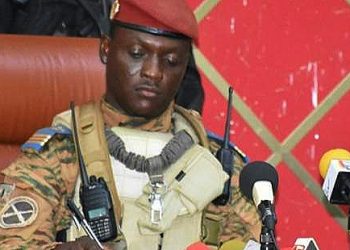By John Ikani
Mozambique’s legislative body has endorsed a proposed law that extends mandatory military service from two to five years for regular duty and up to six years for special forces.
The objective is to bolster the armed forces’ strength and enhance their professionalism.
The move comes in the context of Mozambique grappling with an Islamist insurgency in its northern region, prompting neighbouring nations to provide military assistance.
The government aims to reduce dependence on foreign aid in countering jihadist threats by implementing a more prolonged military service.
While the legislation awaits potential modifications, it must receive the president’s approval to be enacted into law.
At the age of 18, Mozambican citizens are required to register with the armed forces. However, exemptions based on health or other grounds often lead to individuals not joining.
Under the new law, the armed forces gain the authority to issue conscription summons with approval from the defence minister.
Non-compliance with summonses would incur criminal charges for individuals, and companies obstructing employees from joining could face fines.
The extension of military service received approval from lawmakers affiliated with the ruling Front for the Liberation of Mozambique (Frelimo), supported by the Democratic Movement of Mozambique (MDM), a smaller opposition party.
The major opposition party, Renamo, abstained from voting, protesting recent municipal election outcomes.
According to Defence Minister Cristóvão Chume, the need for a more modern and professional military had become necessary to counter hybrid threats.
He highlighted the evolving nature of security challenges, including links to transnational organized crime, demanding enhanced professionalism for effective combat.
Chume emphasized the benefits of the extended service, stating, “We will have better soldiers. Currently, they train for a year, are deployed to the field of counter-terrorism operations and only stay there for six months, then leave. With this law, we will allow more and place more experienced people to fight terrorism.”
President Filipe Nyusi echoed the sentiment, emphasizing the military’s need to operate independently without relying on foreign support. Joint operations by troops from Rwanda and the Southern African bloc Sadc have been ongoing since 2021 to address the insurgency linked to Islamic State, although sporadic attacks persist.
Mozambique faces various security threats, including piracy, sea pollution, illegal fishing, and drug and human trafficking. The prolonged insurgency in Cabo Delgado has claimed over 4,000 lives and displaced nearly one million people, impeding efforts to develop and exploit the region’s significant natural gas deposits discovered in 2010.
Public reactions to the bill vary. Supporters argue that it provides the government and conscripts with better planning opportunities, as many individuals are demobilized after two years without clear post-service plans. However, concerns have been raised about potential delays in young adults entering the job market.
The current personnel strength of the Mozambican armed forces is approximately 110,000, and the impact of extended military service on overall numbers remains uncertain

































